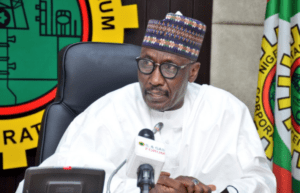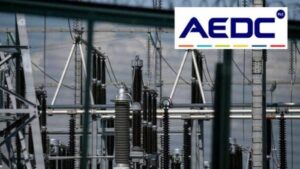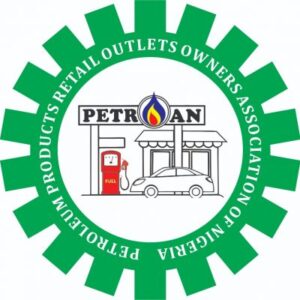Shell ’s history-making strides in Nigerian content development
September 1 2004, was like any other Wednesday in the Niger Delta. But it was strikingly different for one man and his company. The man walked into his office in Port Harcourt and took his seat, and Nigerians rose to their feet to celebrate history.
Basil Omiyi had just spent his first minutes in office as the pioneer Nigerian Managing Director of The Shell Petroleum Development Company of Nigeria Ltd (SPDC.) It was the first time a Nigerian would assume the leadership of a Nigerian subsidiary of an international oil and gas company and the media and other industry watchers hailed the appointment as a good omen for developing Nigerian muscle in the industry.
The meaning of the moment was also not lost on Omiyi, an industry veteran who joined SPDC in 1970 as trainee petroleum engineer. “I am honoured to be the first of what I expect will be many Nigerians to hold the post,” he said. He and other Nigerians calling for more of the same have not been disappointed.
Some 18 years after he walked into the C-Suite, the third Nigerian is in place as the MD of Nigeria’s premier oil and gas company. Not only that, the two other Shell companies in Nigeria, Shell Nigeria Exploration and Production Company, SNEPCo, and Shell Nigeria Gas, SNG, are also headed by Nigerians.
The appointment of Nigerians into key posts is only one aspect of a deliberate effort by Shell to encourage Nigerian content development, which for the over 60 years of Shell’s operations in Nigeria, has ranged from developing talents and supporting contractors and suppliers to provide services in critical areas of the upstream businesses.
The socio-economic spin-offs include employment creation, enterprise development in the Niger Delta and Nigeria as a whole. In May last year, Shell companies were named the International Oil Company with the most impactful local content initiatives at the Nigerian Oil and Gas Opportunity Fair.
The Petroleum Technology Association of Nigeria, PETAN, honoured Shell Companies in Nigeria as the best local content operators at its 2022 industry dinner and awards held in Port Harcourt, the Rivers State Capital, last month. The Managing Director of SNEPCo, Elohor Aiboni, was also named sole recipient of the PETAN Chairman Outstanding Achievement Award, while her predecessor, Bayo Ojulari, clinched the PETAN Distinguished Achievement Award.
PETAN should know. Based in Port Harcourt, this association of more than 80 indigenous technical oilfield service companies in the upstream and downstream sectors with a combined annual revenue of more than $500 million, promotes the development of the oil and gas industry in Nigeria through their services and contributions to policy ideas and formulation. “Shell companies have always stood by local service companies, and they have been part of our local content journey right from the beginning, and have been consistent,” PETAN Chairman Nicholas Odinuwe, said while handing the award to Shell’s representatives.
Odinuwe described Shell companies as a major pillar to the growth of local content in Nigeria by driving the pre-legislation initiatives and providing funding intervention to give opportunity to even start-ups in the service sector to play in the oil and gas supply chain.
Efforts by Shell companies to develop Nigerian content in their operations pre-date the establishment of the Nigerian Content Development and Monitoring Board, NCDMB, in 2010. These efforts have facilitated the growth of Nigerian businesses in the manufacture of tools and technical kits, operation of helicopter flights in the Niger Delta and strategic partnerships between foreign and local companies to stimulate technology transfer and capacity development.
Thus, the Nigerian content development strategy of Shell companies is consistent with the framework of the NCDMB with strong emphasis on research and development, promotion of local manufacturing, indigenous asset ownership and human capacity development.
Among other achievements, Shell Nigeria deployed contractor support fund to enable indigenous entrepreneurs to gain access to credit and sponsoring research in Nigerian universities with the objective of creating local alternatives to imported fluids and additives.
In 2021, Shell Companies in Nigeria awarded contracts worth $800 million (the same as in 2020) to Nigerian-registered companies, of which 92% was to companies where the Nigerian ownership was at least 51%. Also in 2021, over 8,500 contractors supported the operations of the companies last year.
Recognizing the global nature and standards of oil and gas production, Shell does not just award contracts to Nigerians and leave them on their own to struggle for the necessary certifications and improvement of skills. It works with such companies to improve management systems and technical capacity and achieve the necessary certification for their products and services so that they can qualify for tenders and contracts to provide goods and services not only across Shell’s operations and the Nigerian oil and gas sector but also in sub-Saharan Africa.
For example, Caverton Nigeria Ltd which operates in West Africa beneiftted from Shell’s support for developing standards to global levels when it started helicopter services for Shell Nigeria. Apart from technical support, Shell Companies in Nigeria have helped to solve the challenge of contract financing by establishing the Shell Contractor Support Fund in 2012. Nearly $1.6 billion has been provided as loans to 901 Nigerian vendors since the inception of the Fund.
But it is in deep water that Shell’s efforts at Nigerian content development have been very pronounced. The development of the Bonga field by SNEPCo in 2005 gave rise to the first generation of Nigerian deep-water oil and gas engineers. SNEPCo hired Nigerian engineers who cut their teeth on this project, developing knowledge and skills that would advance the country’s oil and gas production and exploration capacity.
The company awarded major engineering and construction contracts to indigenous companies which were involved in the installation of new production manifolds, subsea umbilical systems, oil production and water injection flowlines. In 2019, a local company refurbished one of Bonga’s subsea wellhead control systems, known as a Christmas tree.
Today, wholly indigenous companies manufacture and rebuild hydraulic flying leads, HFLs, in-country in a major technical breakthrough. A Nigerian company also continues to refurbish old subsea Christmas trees. Nigerian companies also played key roles in the seventh turnaround maintenance of the Bonga field which was successfully undertaken in October 2022.
In recognition of these efforts, the NCDMB Executive Secretary, Simbi Wabote, paid glowing tribute to Shell for being the first international oil company in Nigeria to demonstrate belief in the capabilities of Nigerian companies and give them the inroad to participate fully in the oil and gas industry.
He was speaking at a local content workshop for the judiciary in Bayelsa State. No doubt, the pioneering efforts of Shell have helped the NCDMB to achieve nearly 50 per cent local content attainment in the Nigerian oil and gas industry. This translates to retention of over $8 billion of the $20 billion annual spending in the industry. The NCDMB is looking to achieve 70 per cent local content penetration by 2027.
The Board and indeed Nigerians can continue to count on the history-making strides of Shell in Nigerian content development. This is a guarantee of more Omiyi’s moments




